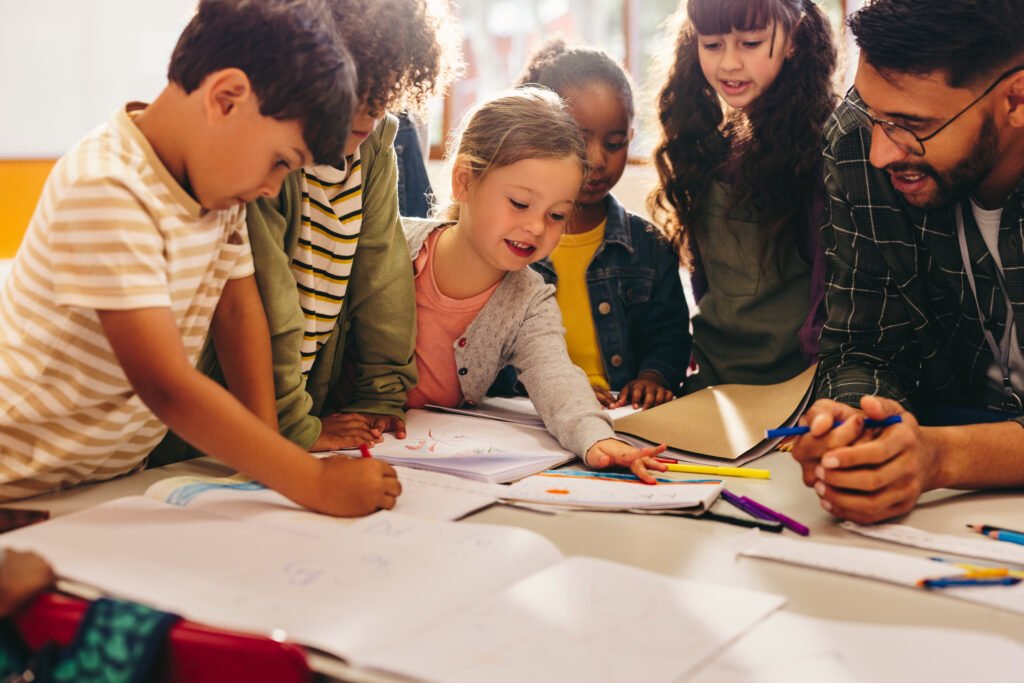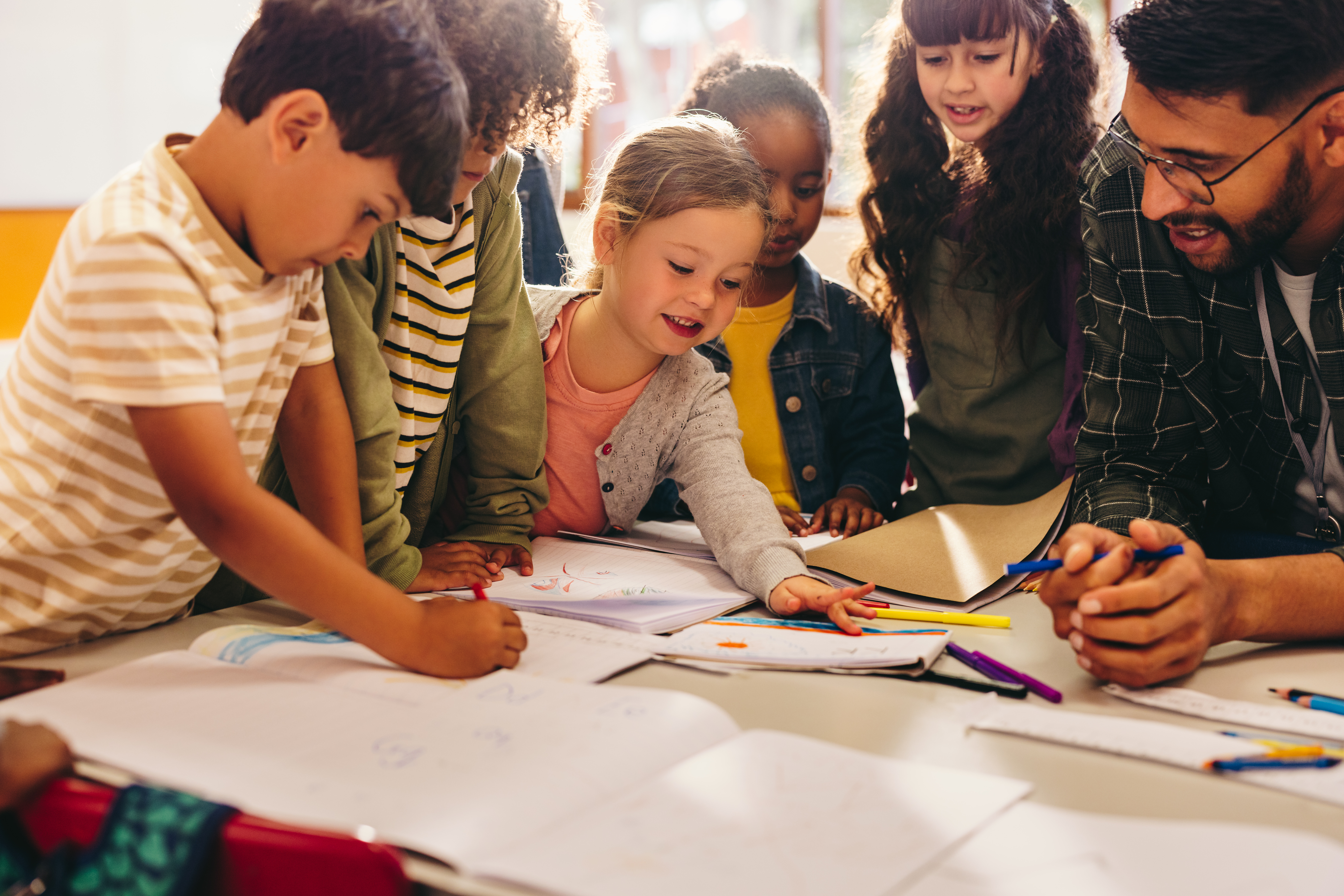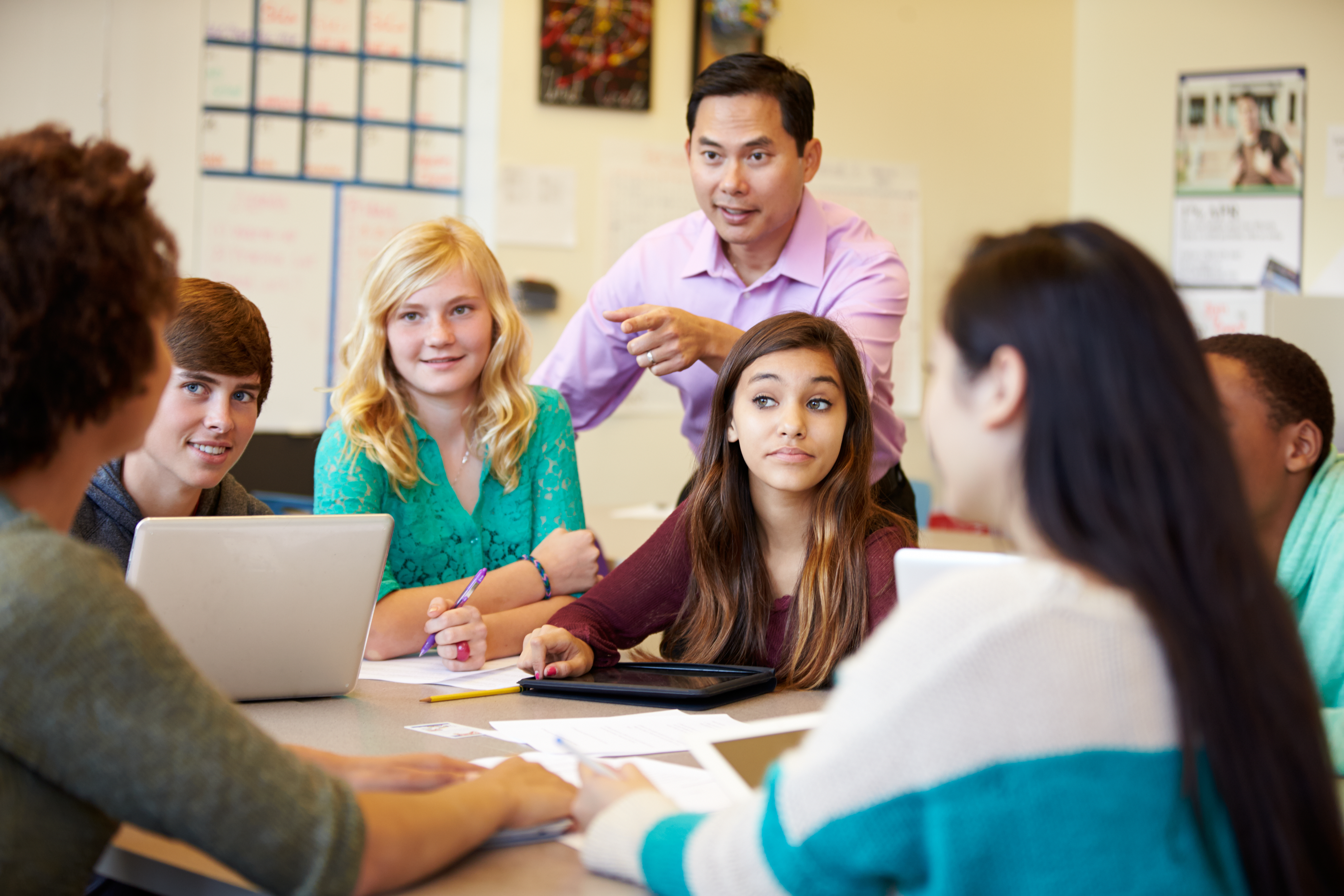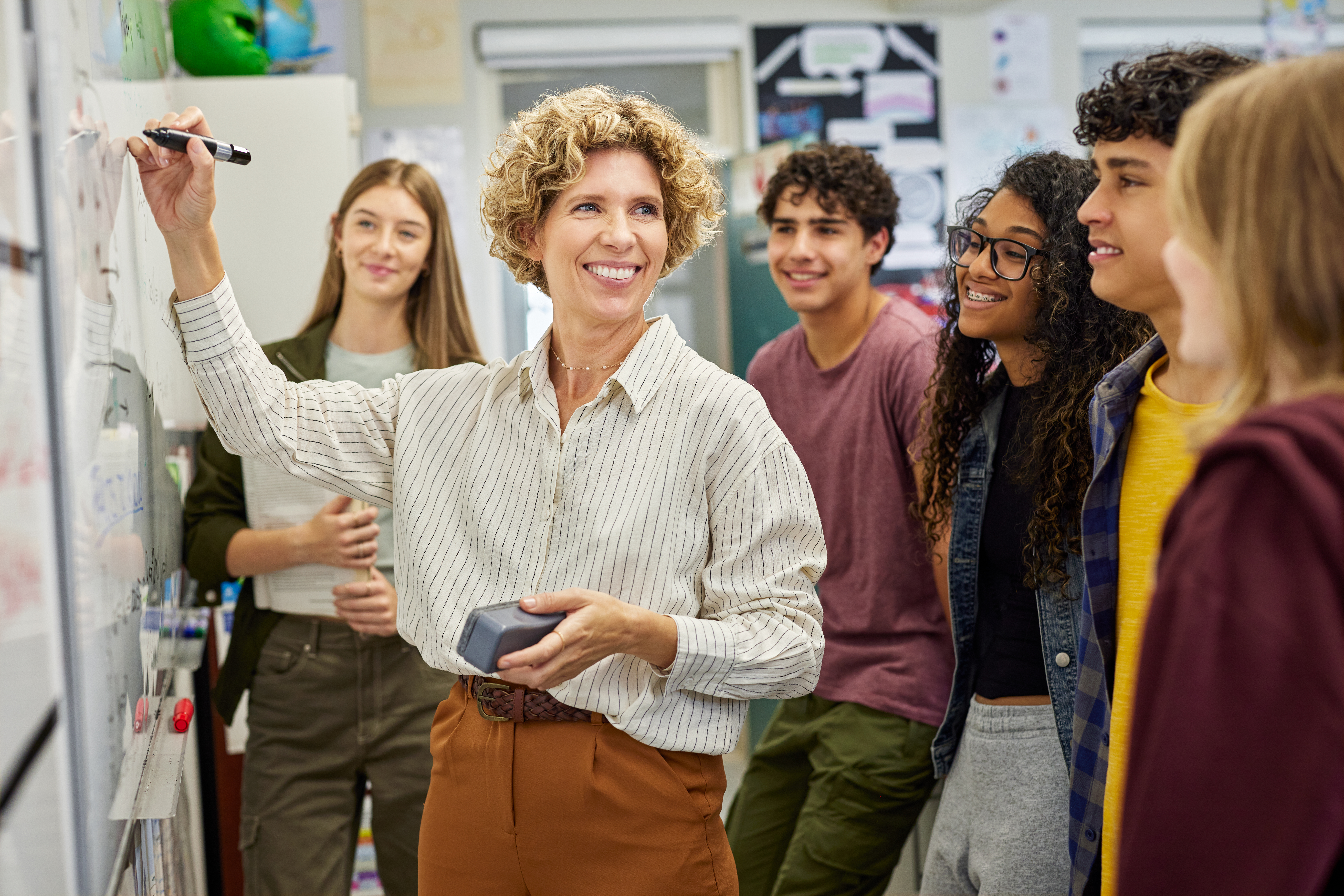
Group of children doing an art project with their teacher. Elementary school students enjoy drawing using colouring pencils. Creativity as part of early child development.
Empowering the Gifted: Top Strategies for Educators to Foster Resilience and Confidence
Gifted students face unique challenges that can feel overwhelming for educators and parents alike. These bright minds often struggle with anxiety and perfectionism, making it hard to build resilience and confidence. But what if you had the right educator strategies to turn these struggles into strengths? In this post, we’ll explore practical approaches to provide emotional support for gifted youth, helping them thrive. Dive in to discover how you can make a lasting impact on their journey. Ready to empower these exceptional learners? Let’s get started! For more insights, visit this link.## Building Resilience in Gifted Students

Gifted students often face high expectations, both from themselves and others, which can lead to stress and anxiety. Building resilience is crucial for helping them manage these pressures effectively. This section offers strategies that focus on emotional expression and managing perfectionism, both essential in nurturing resilient gifted learners.
Encouraging Emotional Expression
Gifted students may struggle to express their emotions, often fearing judgment or misunderstanding. Creating a safe space where they feel comfortable sharing their feelings is vital. Teachers and parents should reassure students that it’s okay to feel overwhelmed at times. This can be achieved through open dialogues and reflective activities.
Regular check-ins can provide opportunities for students to voice their concerns. Encourage them to journal their thoughts or engage in creative outlets like art or music, which can be therapeutic. By validating their emotions, educators and parents help students develop emotional intelligence and resilience.
Group activities involving role-playing can also be beneficial. They allow students to explore various scenarios and express emotions in a controlled environment. This practice helps in building empathy and understanding among peers.
For more on supporting emotional expression in gifted students, visit NAGC.
Strategies for Managing Perfectionism
Perfectionism is a common trait among gifted students, often leading to anxiety and a fear of failure. Educators can use specific strategies to help manage these tendencies. First, it’s important to set realistic expectations and celebrate effort, not just outcomes.
Consider implementing graded challenges where students can tackle tasks of increasing difficulty. This approach helps them appreciate the process of learning, not just the final product. Encourage them to view mistakes as learning opportunities, rather than failures.
Mindfulness practices, such as meditation and breathing exercises, can also help in reducing anxiety associated with perfectionism. Teaching students to focus on the present moment and accept imperfections is a powerful tool in resilience building.
Explore more strategies on managing perfectionism at ESCCO.
Boosting Confidence in Gifted Youth

Confidence is key for gifted students to reach their potential. A supportive environment and the celebration of achievements play significant roles in boosting their self-esteem. This section delves into practical ways educators and parents can nurture confidence in gifted youth.
Creating a Supportive Environment
A supportive environment is the backbone of confidence building. Teachers and mentors must foster inclusive and encouraging classrooms that celebrate diversity in thinking and learning styles. Offering constructive feedback, rather than criticism, helps students feel valued and understood.
Create opportunities for peer collaboration where students can learn from each other’s strengths. When students see that their ideas are respected and considered, it bolsters their confidence. Additionally, providing leadership roles can empower gifted youth to take initiative and build self-assurance.
Classroom policies that promote respect and open-mindedness contribute to a positive atmosphere. When students feel safe and supported, their confidence naturally grows.
Learn more about creating supportive environments at Genie Academy.
Celebrating Small Achievements
Recognizing and celebrating small achievements is crucial in building confidence. Frequent acknowledgment of progress, no matter how minor, reinforces the idea that improvement is a continuous journey. Celebrating these milestones encourages students to keep striving toward their goals.
Implement a rewards system where students earn badges or certificates for reaching specific milestones. This not only motivates but also visually represents their growth.
Encourage reflection on achievements by having students maintain a success journal. Regularly reviewing their accomplishments helps them see how far they’ve come, reinforcing self-confidence.
For insights on celebrating achievements, visit Edmentum.
Emotional Support for Gifted Teens

Gifted teens often face unique emotional challenges that require tailored support. Open communication and mentorship are critical components in providing the support these students need. This section explores how to create strong support systems for gifted teens.
Open Communication Channels
Open communication is essential for understanding the unique needs of gifted teens. Creating a dialogue where students feel heard is the first step. Regular discussions about their interests and challenges can reveal underlying issues.
Encourage students to ask questions and express themselves freely. Establishing trust is key, and it comes from consistent and genuine interactions. Incorporate anonymous suggestion boxes if direct communication feels daunting for some students.
Organize forums or discussion groups where students can share experiences and solutions with peers. This not only fosters community but also helps students realize they are not alone in their struggles.
For more on open communication strategies, check NAGC.
Importance of Mentorship
Mentorship can play a transformative role in the lives of gifted teens. Experienced mentors offer guidance and serve as positive role models. They can provide insights and encouragement that are crucial for personal growth.
Encourage students to seek mentors who understand their passions and challenges. This could be a teacher, a coach, or a professional in a field of interest. Regular mentor-mentee meetings can provide personalized advice and support.
Sharing success stories of other gifted individuals can also be inspiring. It helps students see the possibilities for their future and motivates them to pursue their dreams.
Explore more about mentorship for gifted youth at ESCCO.
🌟✨

A certified Heal Your Life® Coach with 20+ years in education and emotional development. Supports gifted teens in navigating anxiety, perfectionism, and identity challenges, while equipping parents with practical tools for lasting transformation. Sessions blend emotional healing, mindset mastery, and strategic empowerment.



